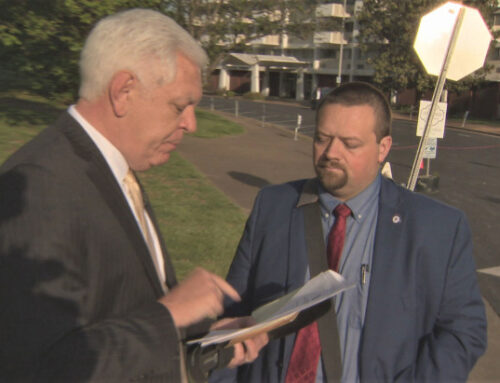Sumner County Judge Dee David Gay signed an order last week denying a summary judgment to the Sumner County Board of Education in a public records case about its restrictive request policy.
The order reflects the findings in a hearing on Jan. 9, when the school board argued that it had the right to essentially ban citizens from calling or emailing to make a request to view public records, and instead to require all such requests to be mailed by U.S. Postal Service, or made in person.
The lawsuit was filed by Ken Jakes, who had emailed the school board’s community relations supervisor, Jeremy Johnson, asking to see the district’s public records policy. Johnson would not send him the policy, nor did he mention the policy was online or share a link to it. Instead, he told Jakes that any request to look at records had to be by U.S. mail or in person.
The order repeats the judge’s finding delivered in court, which allows the case against the school board to proceed. Here’s an excerpt from the order:
“The position of the Defendant (Sumner County Board of Education) in response to Plaintiff’s public records request for “inspection and review” has placed the Plaintiff in a position to whether the Plaintiff must: (1) come to the Sumner County Board of Education to make a request to view or inspect records, and then come back to view and inspect records; or (2) submit a written request for viewing or inspection of the desired records. The latter is not appropriate under the Tennessee Records Act, and the former option should not be the only option available for a request for viewing/inspection. The Board has required a records request to be made in writing for a view of the records. This option is clearly in violation of T.C.A. 10-7-503(7)(A). That limits a reviewer to one option: only to come in person concerning a request to view records. If the records cannot be located at that time, the reviewer must come back another day. The Court notes that there are other valid options for requesting the inspection of public records that could and should be used for making “requested records available as promptly as possible”…and in striving “to respond to all records requests in the most economical and efficient manner possible.” The Court will not tell the School Board what public records request policy to follow. This Court will determine if there is a violation of the Tennessee Public Records Act in this case.”
The judge during the Jan. 9 hearing admonished the school district for not just telling Jakes the policy was online and providing a link. He noted litigation could have been avoided it it had.
Here’s a link to a transcript from the Jan. 9 proceedings, findings of fact and conclusions of law.




